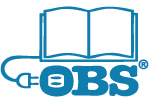Thoughts on a Quickening Global Publishing Machine
The Human/Machine Interface (HMI) took its first steps decades ago in the form of crude WordStar spellchecker intrusions on our static documents. Now, the walk has picked up to a polka pace as publishing becomes a real-time, global interchange of ideas and information. Medical publishing in particular pushes the pace towards an intimate pairing of →
